![]()
![]()
![]()
Use LEFT and RIGHT arrow keys to navigate between flashcards;
Use UP and DOWN arrow keys to flip the card;
H to show hint;
A reads text to speech;
10 Cards in this Set
- Front
- Back
- 3rd side (hint)
|
Thomas Paine |
Englishman, who published a pamphlet entitled "Common Sense". Thousands of copies circulated throughout the colonies. He published it since 1774. The timing of the publication of Common Sense fit perfectly with the new act of tyranny by George III. |
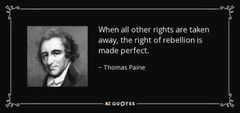
|
|
|
George Washington |
Lived and worked for the benefit of others. He commanded the awe of people. The upright character, practical, and powerful influence of him steered the thirteen colonies through the storms of the War of Independence. He won their confidence and respect. He focused on forming a government by the people and for the people. |
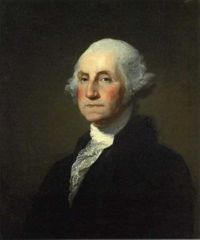
|
|
|
Nathan Hale |
A 21 year old schoolteacher. He attempted to relay information to George Washington about General Howe's troops. Hale had almost crossed British lines when he was captured. He was hang on September 22, 1776. |
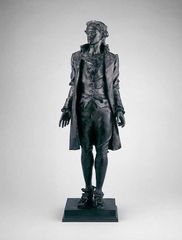
|
|
|
Battle of Oriskany |
General Howe sail his troops south from New York and up Chesapeake Bay to attack Philadelphia. Their mission ran into problems. When Burgoyne had reached Saratoga his men were exhausted, and short of supplies. Burgoyne surrended his entire army of 5000 men to General Gates on Oct 17, 1777. |
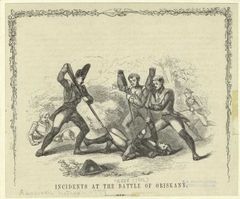
|
|
|
Battle of Saratoga |
Proved to be the turning point in America's War for Independence. It finished British chances or isolating New England from the rest of the colonies. Such of a decisive victory did much to lift American morale. In France, these news persuaded the French government to enter into a formal alliance with America. |
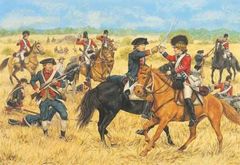
|
|
|
Battle of Yorktown |
Meant triumph for the patriot cause. Lord North was reported to have said "It is all over". Fighting between British and patriot forces continued for another year. On the other hand, American independence was virtually won at Yorktown. |
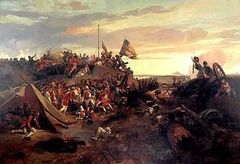
|
|
|
Sugar Act of 1764 |
Cut in half the tax on raw sugar imported to the colonies, but raised the tax on refined sugar to balance the loss of revenue. Stated that it's purpose was to raise revenue. New York taxation insisted that there should be "no taxation without representation". It was publiched "The Rights of the British colonies asserted and proved". |
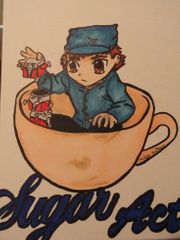
|
|
|
Stamp Act of 1765 |
Provided that the colonists must by stamps or seals, to affix legal documents. This act was the most hated. Prompted Patrick Henry to make one of the fiery speeches that would make him famous. Sam Adams and others created the society known as Sons of Liberty that held parades and protests. They destroyed the hated stamps and forced stamps distributors to resign. |
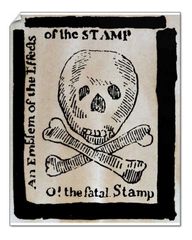
|
|
|
The Currency Act of 1764 |
Barred the colonial government from issuing any more paper money and forbade colonists to pay depts to English merchants. |
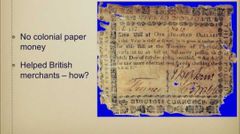
|
|
|
Philadelphia, Pennsylvania |
Birthplace of the Declaration of Independence and the constitution of the United States. |
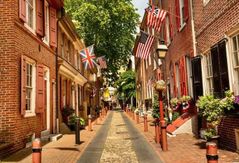
|

